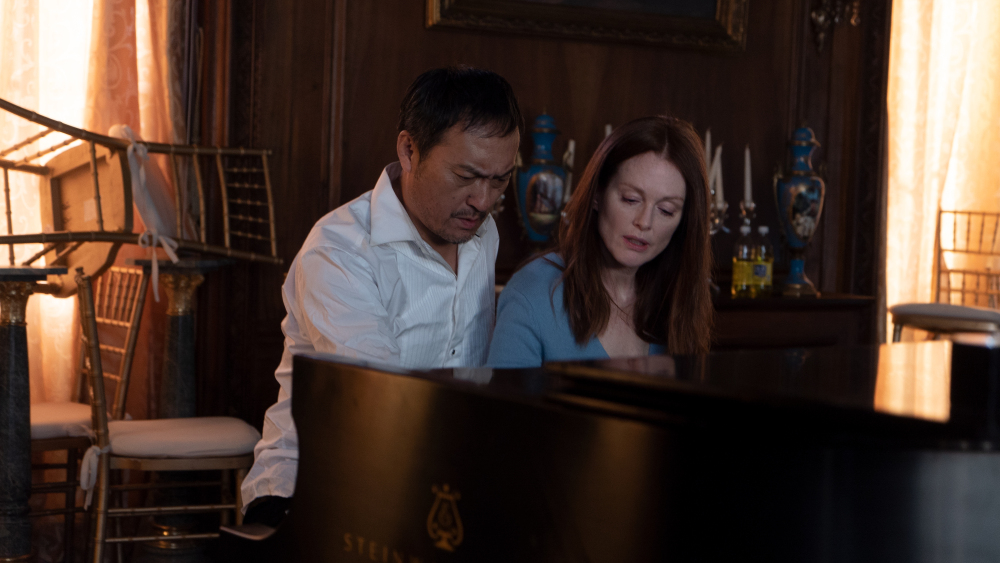
Well, it’s officially awards season, and with the fall festivals in full swing, it’s about time we get the latest and greatest in prestige pictures, arthouse juggernauts and foreign films destined to be the topic of much debate as the season continues. One of those films, at least in the abstract, that fits the first category in that trio hits theaters on September 14, and while the above-the-title talent leads to much excitement, in execution Bel Canto is a rather forgettable failure.
Based on the best-selling Anne Patchett novel of the same name, Bel Canto stars Julianne Moore as a beloved opera singer caught in a crisis. The talented soprano, hired to give a private show at a wealthy Japanese man’s birthday party in a war-ridden part of South America (the events are inspired by the Lima hostage crisis of the mid-1990s), is ultimately taken hostage along with the rest of the party guests by a group of rebel fighters. With demands mainly focused around the release of fellow rebels currently held by the government, the film is ostensibly a one location drama centered around the bonds built under this troubling crisis. Starring Moore as well as Ken Watanabe,, Sebastian Koch, Christopher Lambert and Maria Mercedes Coroy, Bel Canto is a handsomely made thriller that is as narratively thin as it is dramatically inert.
Directed by Grandma director Paul Weitz, and with a script by Weitz and co-writer Anthony Weintraub, Bel Canto is a type of film theaters see too often. Despite garnering a cast top-lined by two actors who have both been better and seen better material, Bel Canto is a thriller sans thrills, and a romance picture sans any romance. Feeling very much in tune with the type of novel one would see at an airport terminal only to digest without much difficulty on a subsequent flight, Weitz crafts a film with perfectly serviceable design work (the costuming is fine as is the production design), but has little interest in truly creating a world for these characters to inhabit. Every single shot of this film is flat and devoid of tension, culminating in a burst of violence that is both cartoonish and verging on offensive given the lack of stakes built in previous scenes. Like having a Scorsese-inspired shootout in the final act of The Choice or some other Nicholas Sparks adaptation, Weitz seems to have little to no real passion for the material or interest in elevating it.
The performances are even more lifeless, particularly Moore who is fine, but is given almost nothing to do. Her and Watanabe have even less chemistry, leading their romance to sit flat on the screen. Doing a disservice to two of today’s great actors, every word of this film feels forced and lacking the naturalism that both actors have such ease with. The plot itself is silly in a way great novels can be, yet doesn’t translate to the big screen in a way that either leads into the inherent tension of a hostage drama or the type of melodrama that comes from people falling in love under such cartoonish duress. There’s not a single moment of real tension here, with the plot taking turns that can be described as dull at best and downright manipulative at first, and while some shots are rather handsome in their lensing and framing, they are in the service of a film that doesn’t have any interest in building tension, at least not until a final act sequence that, again, is one of the truly offensive audience manipulations of 2018. Steer clear.



